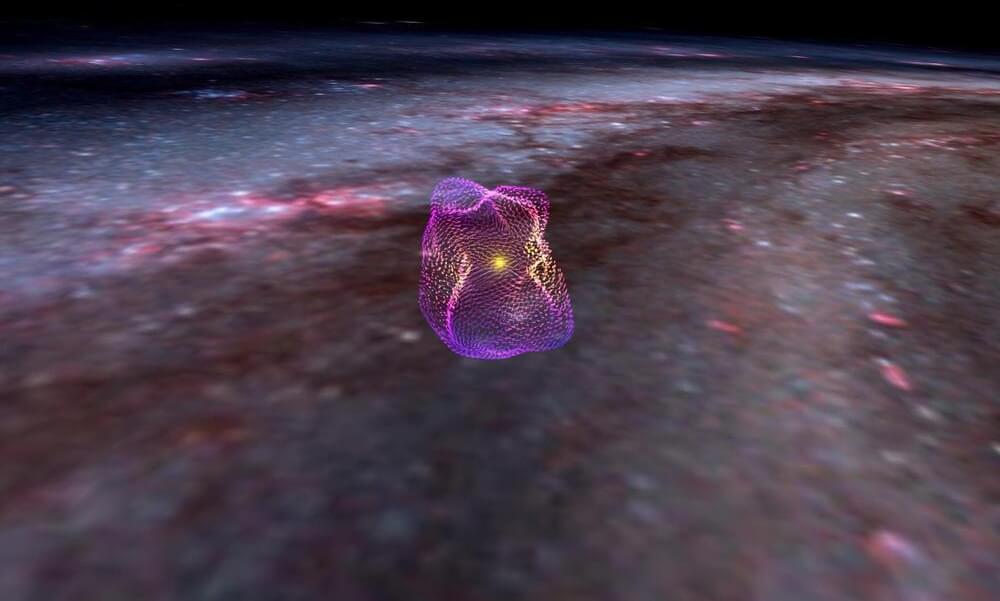Astronomers at the Center for Astrophysics | Harvard & Smithsonian (CfA) have unveiled a first-of-its-kind map that could help answer decades-old questions about the origins of stars and the influences of magnetic fields in the cosmos.
The map reveals the likely magnetic field structure of the Local Bubble—a giant, 1,000-light-year-wide hollow in space surrounding our Sun. Like a hunk of Swiss cheese, our galaxy is full of these so-called superbubbles. The explosive supernova deaths of massive stars blow up these bubbles, and in the process, concentrate gas and dust—the fuel for making new stars —on the bubbles’ outer surfaces. These thick surfaces accordingly serve as rich sites for subsequent star and planet formation.
Scientists’ overall understanding of superbubbles, however, remains incomplete. With the new 3D magnetic field map, researchers now have novel information that could better explain the evolution of superbubbles, their effects on star formation and on galaxies writ large.









Comments are closed.